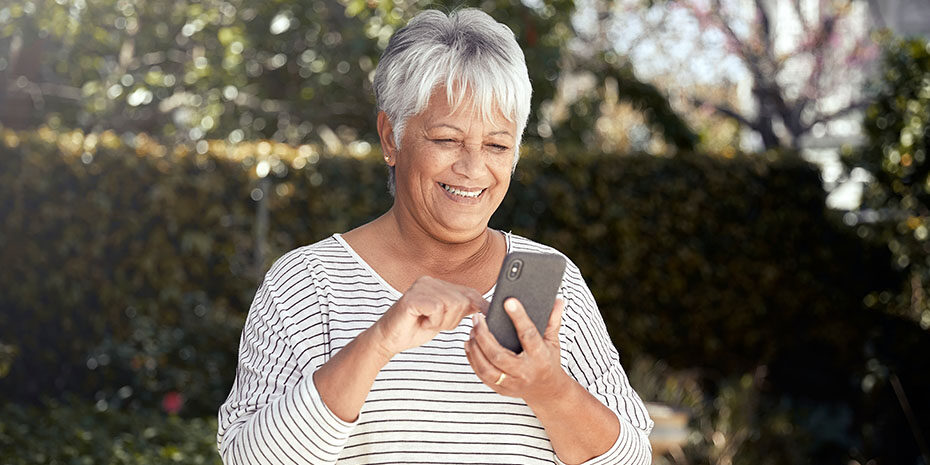
Around a third of older Australians have at some point used a mobile health app, researchers from the University of New South Wales and CSIRO, Australia’s national science agency, have found in a first-of-its-kind study using data from the Sax Institute’s 45 and Up Study.
The research analysed mobile health app use in 31,946 45 and Up Study participants and found the two health issues most monitored on an app were fitness (24% of participants), along with vital signs such heart rate or blood pressure (23%). Other issues like nutrition, mood, sleep and medications were less popular, with each being monitored by less than 10% of participants.
When looking at the app features that drive behavioural change, lead author Vera Buss says apps that are trustworthy and personalised have better chances of helping people change their health habits.
“Now, app developers are gathering info so that an app knows when you’re driving and won’t send you messages then, or knows when it’s raining, so it won’t suggest you go for a walk,” says Ms Buss, who is a PhD student at UNSW and is jointly supported by UNSW and CSIRO.
Ms Buss has also developed a prototype app-based intervention for cardiovascular disease and diabetes, so she’s seen first-hand both the potential of health apps and the challenges they face.
“It’s challenging to engage people over longer periods,” she says. “Usually, at the beginning, they’re excited to try it out, but it’s harder to make a habit of it. And with chronic disease prevention, good habits are what you need.”
When it comes to chronic diseases like cardiovascular disease and diabetes, those with risk factors were not more likely to use mobile health apps than those without risk factors, when adjusted for factors like age and sex. App users were also more likely to be female, younger, without a physical disability and with a higher income.
“Our study showed that healthy people are more likely to use health apps and that aligns with what’s been found in studies from other countries,” says Ms Buss.
In the future, GPs may even be able to prescribe health apps to patients – it’s already being done in Germany for patients who have a diagnosed condition, with other European countries interested in the concept, says Buss.
“I think it’s a great opportunity. GPs have so much work to do already, so if there’s an easy way to promote prevention, it’s a good outcome.”
The study is a collaboration between the Australian e-Health Research Centre at CSIRO and the Centre for Primary Health Care and Equity at UNSW.





